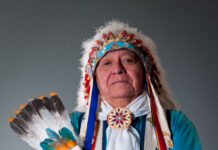When parents explore schools with their child, one of the considerations might be sports, and for those thinking about sending their kids to private schools, these schools may offer expanded or atypical athletic options with unique benefits kids might not get from other sports.

These sports can offer a sense of belonging, improved self-worth and an avenue to pursue interests outside of traditional school sports like basketball, softball or track and field.
“By offering a variety of sports their children have not been exposed to, their children can join teams and engage in group activities that promote cooperation, leadership and communication skills that they did not have the opportunity to explore in club or rec programs,” says Tina Veprek, athletic director at Bryn Mawr, an all-girls private school in Baltimore.
Here are a few examples of sports kids have the opportunity to try at Baltimore schools, from classic team sports to mentally stimulating independent challenges.
A Modern Classic
Bryn Mawr offers badminton as one of its sports programs, a classic racket sport said to be more than 2,000 years old, with its modern version dating back to England in 1873. Since then, the game went through a lot of changes and became an Olympic sport in 1992. Today, it’s most popular in Asia.
Veprek says the game develops multiple complex movement patterns and offers athletes serious about more traditional school sports an off-season outlet for sustained fitness and competition with less pressure.
“Participation often becomes more fun, and because they put fewer expectations on themselves that can sometimes detract from the enjoyment of playing a sport,” she says.
Mental Mastery & Mental Health
Some schools such as Jemicy School, in Owings Mills, also offer sports based on student interest, which expands the range of options for students and ensures they have a sport they’re invested in. Jemicy has programs from rock climbing to golf, and formerly, fencing.
Jemicy’s Head of School, Ben Shifrin, says these sports provide a different avenue for growth as they aren’t quite as team-oriented, and rock climbing—which has become increasingly popular in the last few years—serves as a great example of competing against oneself.

“Kids get a lot out of it in the mental sense with something like rock climbing—setting a goal for themselves and achieving it or mastering it…Developing a personal goal for yourself, achieving it again and again, it’s individualized or personalized. So, there’s definite mental benefits that we see that transcends into their academic work,” Shifrin says.
Tim Hormes, Jemicy’s associate head of school, says a sport like rock climbing can also help build a child’s self-esteem, which is an important factor at Jemicy, which serves students with learning challenges.
“We’re a school for children who learn differently, and we try to balance their day with things that they struggle with, but at the same time…balancing them with great experiences that really make their day enjoyable and really propel their self-esteem and self-image,” Hormes says.
Learning Through Experience
Another sport with self-competition is golf, where Jemicy has been a co-champion for the last five years in the local private school league, the Maryland Interscholastic Athletic Association.
Golf is an extension of Jemicy’s focus on experiential learning. The game teaches students how to deal with failure and adversity, which builds character, according to Shifrin.
According to the Professional Golfers’ Association of America in 2021, junior leagues were on the rise, and some other benefits to golf for kids include problem solving, working with numbers and self-analysis.
“It goes back to having kids find their passion, what they like, what it is they want to do,” Shifrin says. “‘We’re a very active school. Our classrooms are full of movement and energy and interaction. So, we tried to provide experiences like that.”








